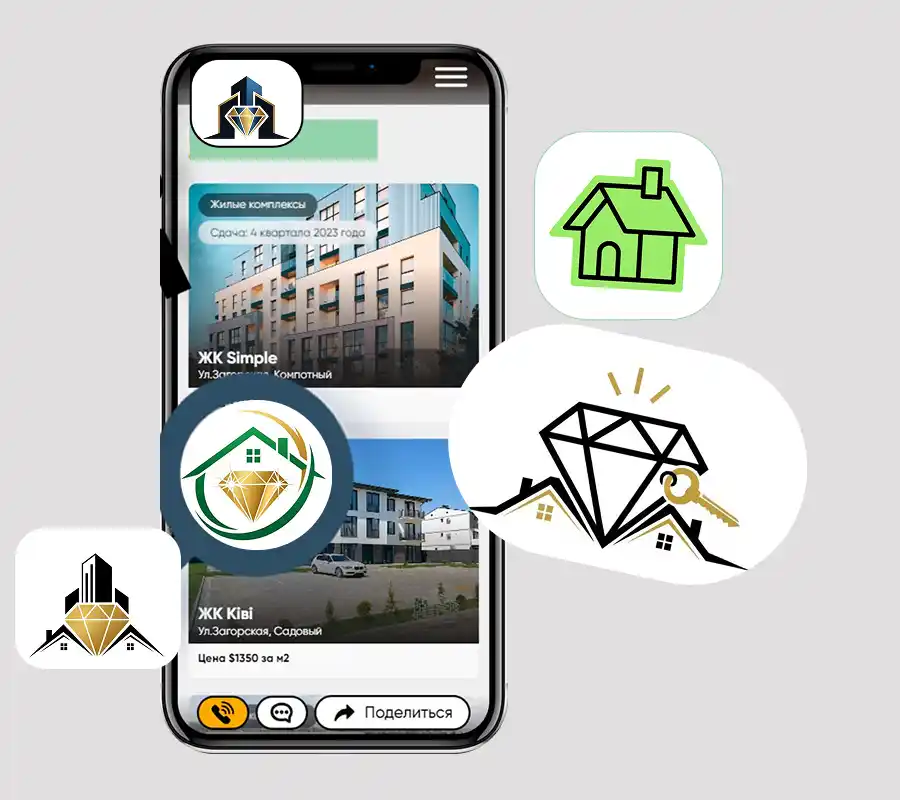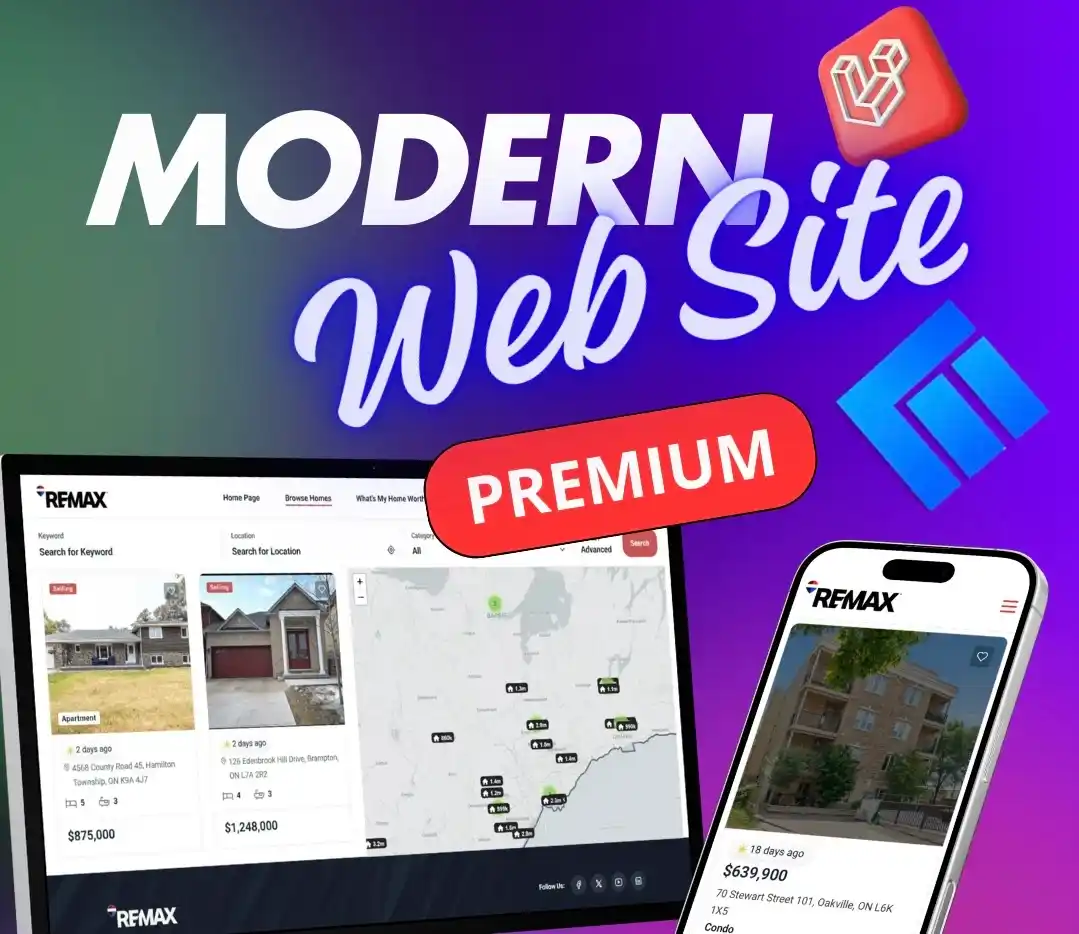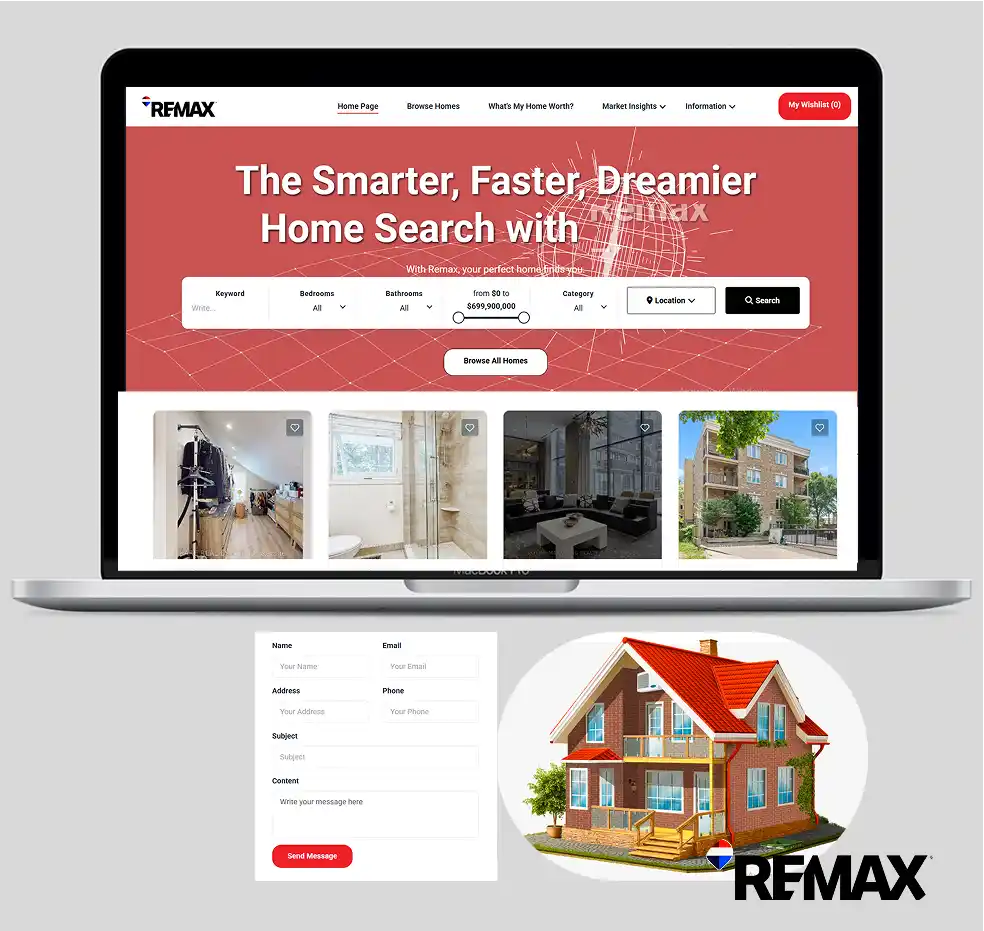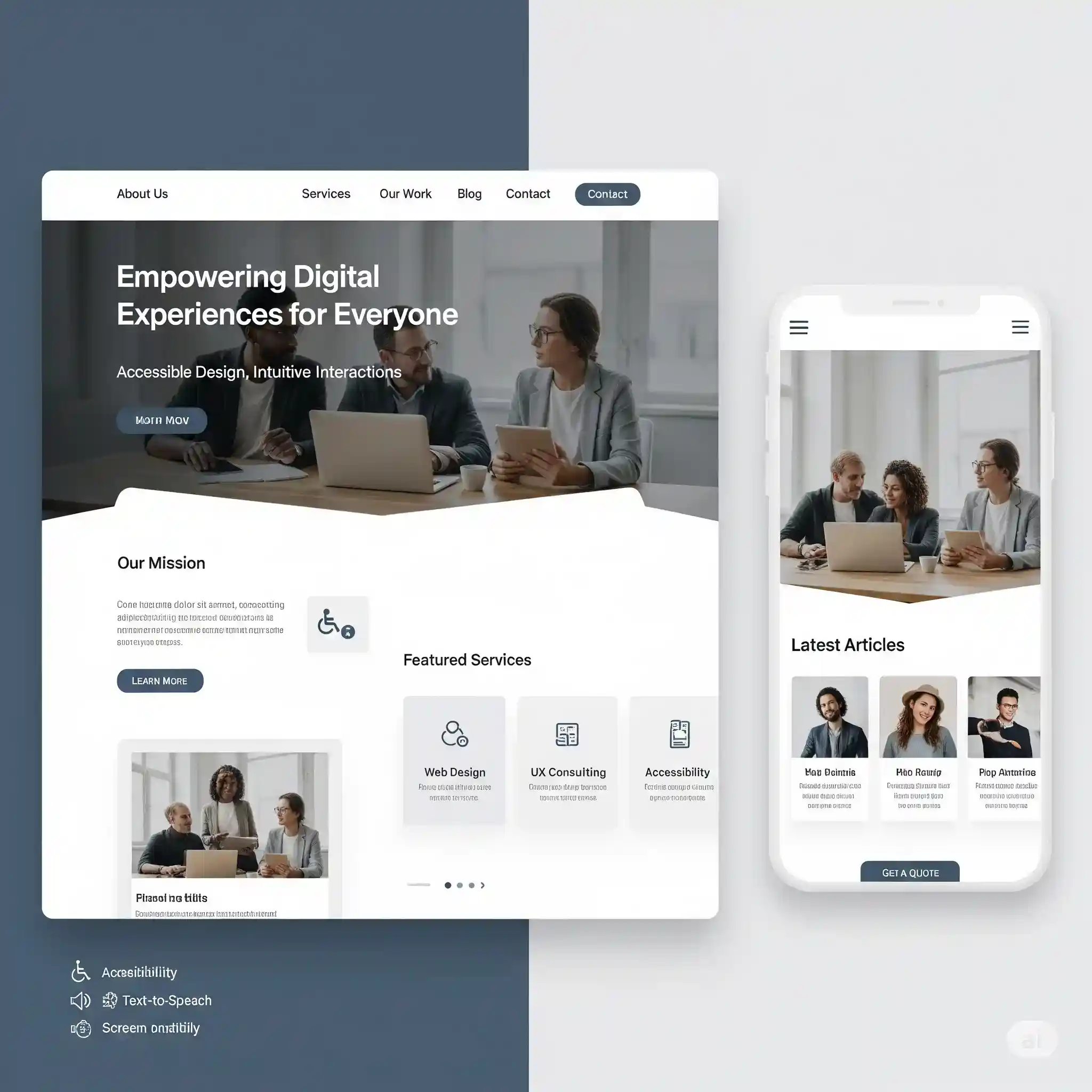

2025-09-14
What's the difference between a real estate developer's and a realtor's website? A full comparison and SEO optimization
Real Estate Websites: Developer vs Realtor differences
Tags:
The real estate industry is a complex but extremely promising market. Here, every player, from a large developer to an experienced realtor, has their own tools for success. While offline it's experience and reputation, online it's an effective website. But what's the difference between a site created for a developer and one for a realtor? The answer to this question is the key to creating a resource that will be not just a business card, but a powerful tool for sales and customer acquisition.
1. Strategy and target audience
Developer's website: Focus on the project
The main goal of a developer's website is to present and sell specific residential complexes. It's a storefront that should build trust in the company and create a desire to buy property from them. The audience is not just looking for an apartment, but a future home, so the content should be emotional and visually appealing.
Key SEO queries:
buy an apartment in [name of residential complex], new building in [name of city/district], apartments from a developer.Realtor's website: Focus on services
A realtor's website is a portal that brings together thousands of listings. Here, a client is looking for a wide selection of properties, from second-hand housing to commercial real estate. The site's task is to show the realtor's expertise, the convenience of the service, and to ensure a quick search.
Key SEO queries:
realtor services in [name of city], real estate agency, buy/sell an apartment, long-term rent.2. Content and functionality: What do we fill the site with?
Developer's website:
- Visual presentation: 3D visualizations, virtual tours, and videos from the construction site create a complete picture of the future property.
- Detailed projects: Each residential complex has its own page with a description of the infrastructure, floor plans, and up-to-date information.
- Interactive tools: A map of the residential complex with the ability to select an apartment, a mortgage calculator, and online forms for booking a consultation.
Realtor's website:
- Powerful catalog: An advanced filter for a quick search, high-quality photos, and detailed listing descriptions.
- Portfolio and reviews: Stories of successful deals and client reviews build reputation.
- Informational sections: A blog with expert articles on the market, legislation, and advice.
3. Automation: The key to efficiency
A modern real estate website can't just be a static business card. It's important that it's integrated with a system that automates routine processes.
Websites for developers and realtors, designed by professionals like Confidence Technology
Specialized solutions hold a unique place here. For example, a powerful CRM is necessary for successful work with a large client and property database. One such solution is a plugin for CRM integration in the real estate industry
Thus, the difference between a developer's and a realtor's website lies not only in the content but also in the strategic approach to functionality and design. A developer sells a project, a realtor sells a service. But both need a reliable technical foundation and integration with effective tools like a CRM.
A properly designed and optimized website is your competitive advantage in the digital world of real estate.
Last News.
AI Manager Bob
Hi! Let's find the perfect solution for your business!

Select service type
Websites
Systems
Design
Mobile Apps
Promotion
Other
In which industry is your business?
E-commerce
Finance & Banking
Medicine & Health
Education
Real Estate
Entertainment & Media
Food & Restaurants
Other
What type of project do you need?
What is your project budget?
Do you want to choose technologies for the project?
Leave your contact details and our specialist will contact you to clarify details and offer the optimal solution.
What features should the project have?
CRM system
Online payment
Personal account
Product catalog
API integration
Analytics
Chat/Support
Mobile app
Blog/News
Booking system
Multilingual
Site search
Reviews/Ratings
Notifications
Data export
Data import
Subscriptions
What technologies interest you?
Laravel
Yii2
CodeIgniter
Symfony
CakePHP
PHP
Node.js
Django
Flask
Spring Boot
.NET Core
Express.js
NestJS
Golang
Solidity
Next.js
FastAPI
JavaScript
React
Vue.js
Angular
Svelte
jQuery
Nuxt.js
Backbone.js
Meteor.js
Solid.js
TypeScript
WooCommerce
PrestaShop
OpenCart
Shopify
Drupal
Magento
WordPress
Webflow
BigCommerce
React Native
Flutter
Kotlin
Swift
What additional services are needed?
Design
Branding
SEO promotion
PPC advertising
Technical support
Hosting
Copywriting
Analytics
Testing
Training
Content management
Security
Technical audit
SMM promotion
AR/VR development
Chat bots
Automation
Consulting
Almost done!
Leave your contact details and our specialist will contact you to clarify details and offer the optimal solution.
We guarantee the confidentiality of your data.
Leave your contact details
WhatsApp
Telegram
Viber
Email
Thank you for your request!
Our specialists will contact you within 24 hours to clarify details and offer the optimal solution.





_11zon_11zon.webp)
